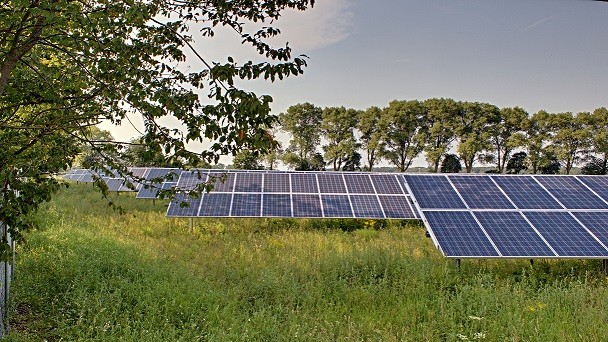Energy is Expensive in Germany – Can This Be a Good Thing?
The high cost of energy in Germany is a result of the country’s transition from fossil fuels and atomic energy to renewables. This could be seen as a marker for a poor market environment – or the opposite, as Mathias Röckel explains.

© jojoo64 | iStockphoto
In 2016, industrial consumers paid EUR 0.1505 per kilowatt hour, according to Eurostat. Energy costs more in Germany than almost anywhere else in the EU, where the average cost is merely EUR 0.119 per kilowatt hour. Only in Italy and the UK do companies pay more for their energy than in Germany.
Why is energy so expensive in Germany? The country is attempting to transition from fossil fuels and atomic energy to renewable energy sources. This change comes at a steep price, which is funded by levies and taxes on Germany’s citizens and companies. Industrial consumers carry a tax burden of 45.5 percent in Germany, higher than in Italy (42.5 percent), Denmark (35.4 percent) and Austria (30.4 percent). By contrast Sweden, the Czech Republic, and Bulgaria’s tax burdens are less than 2 percent, and Malta imposes no energy taxes at all on industrial consumers.
Why is this important for your business?
Whether you are already doing business in Germany, or whether you are planning to in the near future, it is important to know:
- why the country decided to shift from coal, gas and atomic energy towards renewable energy;
- and what this might mean for your business.
Why is Germany shifting toward renewables?
Japan’s Fukushima nuclear disaster of 2012 may have been the catalyst for the German government’s decision for all the country’s nuclear power plants to shut down by 2022. However, support for renewable energy extends back decades. In the late 1990s, Germany passed its first law guaranteeing producers of clean energy a fixed price for every kilowatt hour they provided the grid. This law was succeeded in 2000 by the so-called Renewable Energy Law (Erneuerbare-Energien-Gesetz; EEG).
Now in its 17th year of existence, the EEG has been revised five times – but never without controversy. In recent weeks the Federal Ministry for Economic Affairs and Energy published a report called “The Energy Transition – Our Success Story.” The report’s chapter titles brim with confidence: “Sustainable and safe”; “Affordable and projectable”; “Reliable and intelligent”; “Efficient”; “Competitive”; and even: “Globally seminal.”
But just a few days after the government issued its report, the management consulting firm McKinsey, which has been publishing its own findings on the energy transition in Germany every six months, declared quite the contrary. According to McKinsey, the success of renewable energy has been possible only through subsidies. The initiative’s goals – and most importantly the reduction of carbon dioxide -- are becoming more unrealistic, McKinsey says. Out of 15 key performance indicators McKinsey defines, only one has improved in the past six months, while 10 actually have gotten worse.
Whether McKinsey or the government are right is not the point. Either way, the energy transition and the discussions that come with it are far from over.
Energy is but one factor for companies to consider
If energy is a vital factor to your success, be aware you will pay more for power in Germany than in some other European countries. But high costs are not necessarily a marker for poor market environment. In fact, quite the opposite can be the case. Take, for instance, the data center industry.
Frankfurt is among Europe’s top locations for data center providers -- and data centres are energy thirsty. The data center community in the Frankfurt area has seen continuous growth over the past years, managing to surpass even the Frankfurt Airport (the fourth largest airport in Europe) in terms of power usage. The data center industry example illustrates that energy cost is but one factor to consider regarding your business. In the data center industry, other considerations include security, availability, latency, connectivity and geography. At the end of the day, what is more important to your customers: your production cost -- or the quality you offer in comparison with the price you charge?
Regarding Germany as a business location, look at the the country’s economic statistics and consider this:
While paying more for energy to enable a more sustainable future is something that does make entrepreneurs stop at first and think hard, it would be hard to find an industry prevented from flourishing due to the price of German energy.


